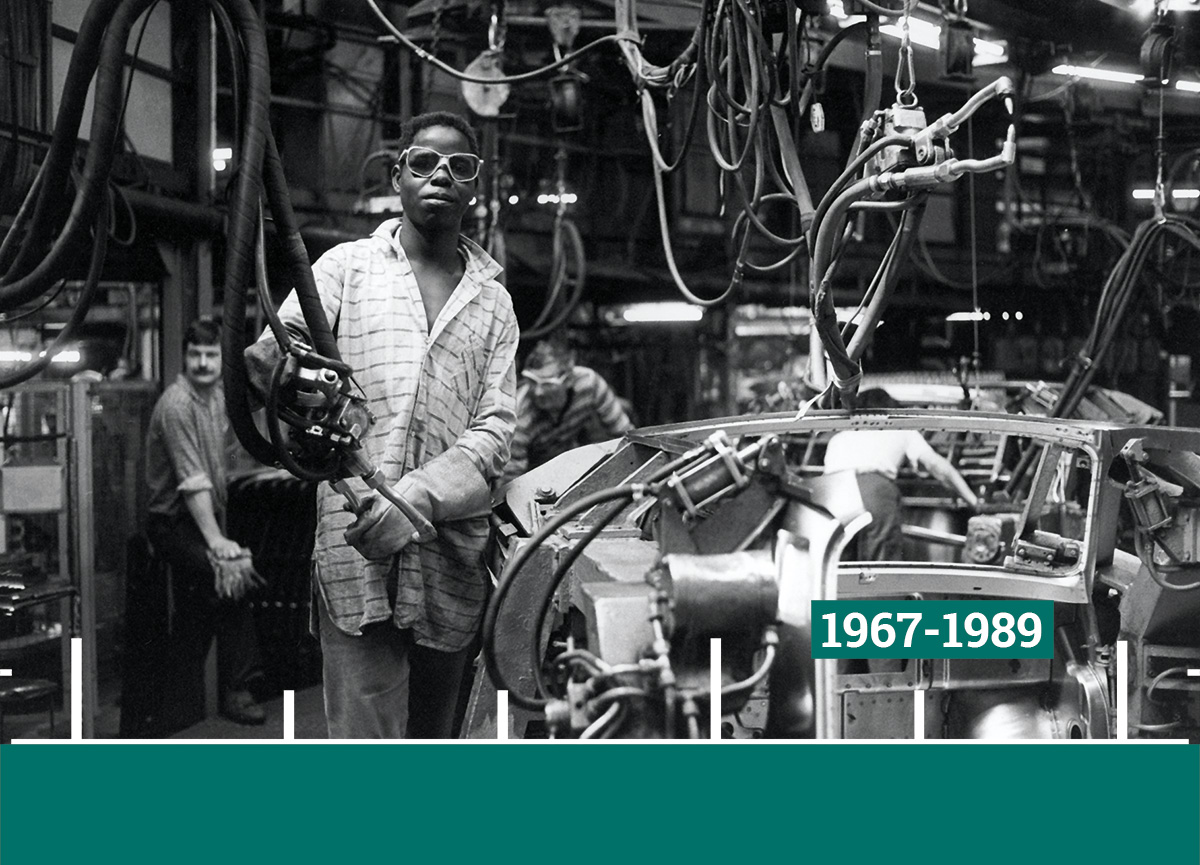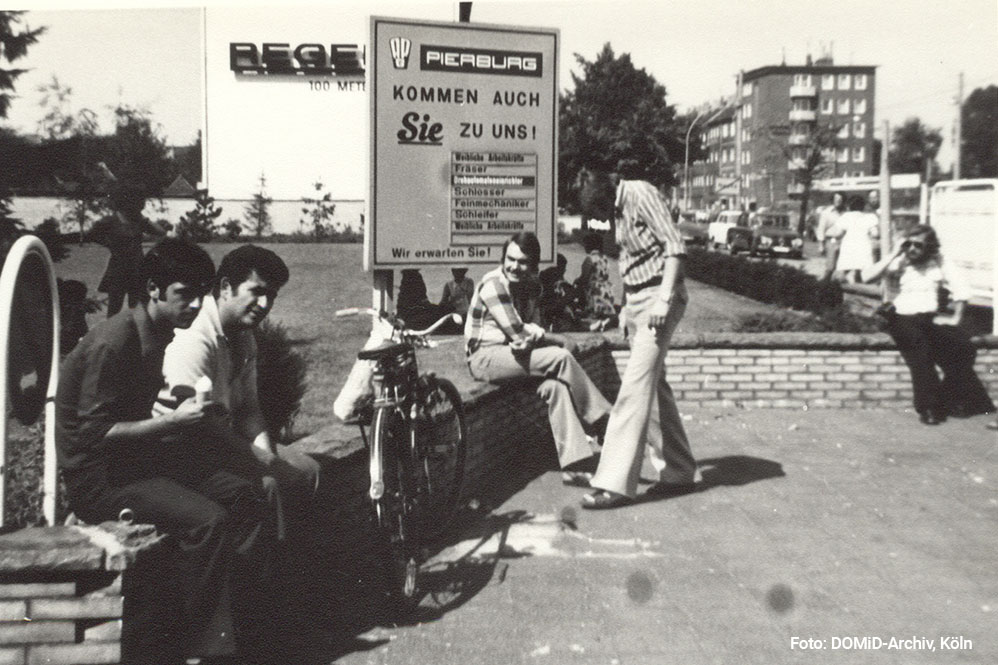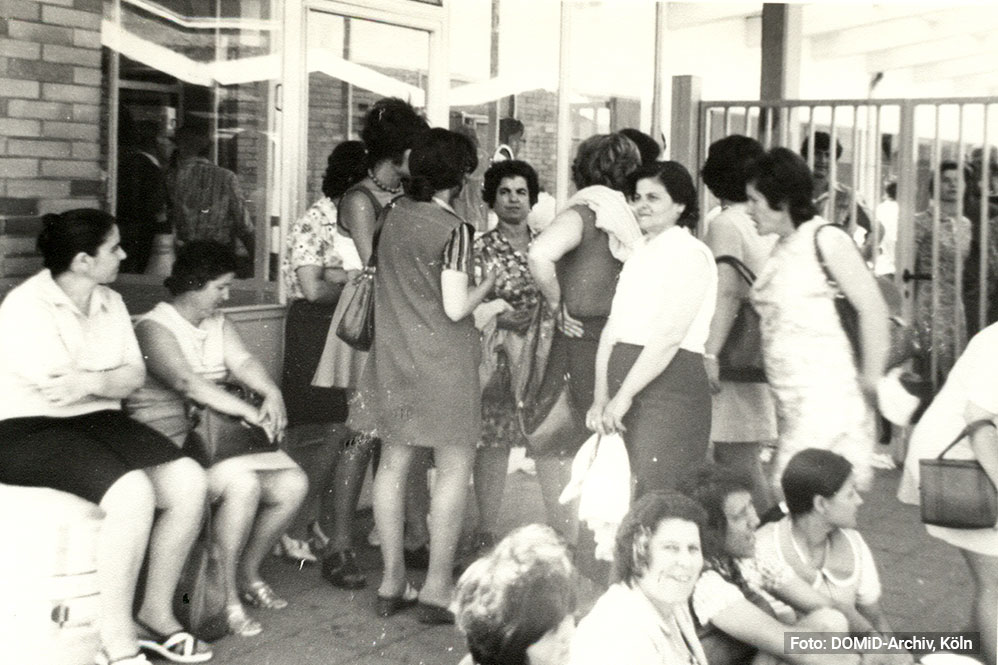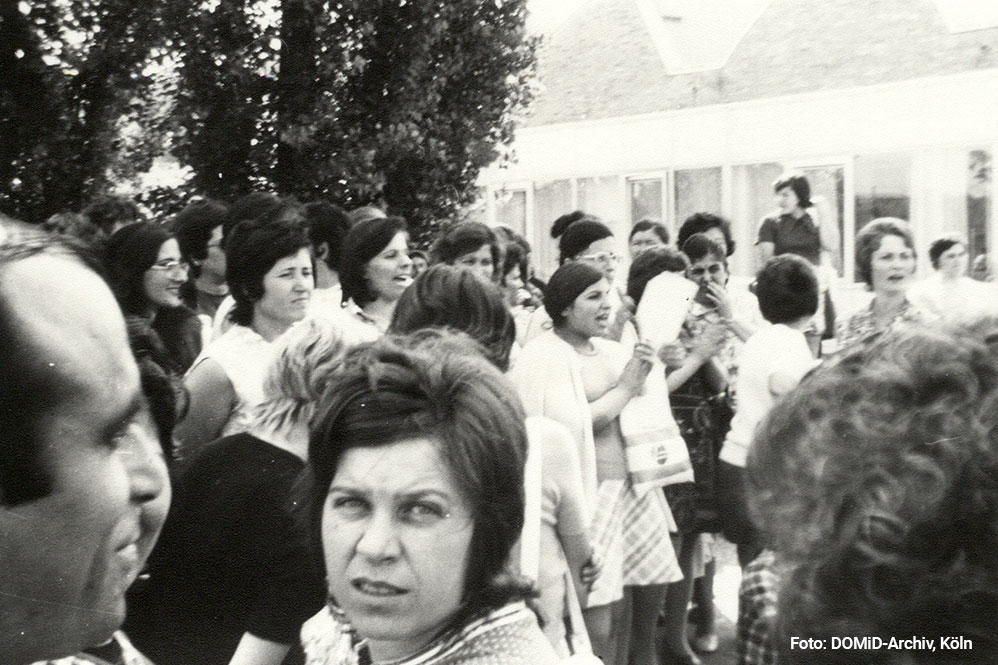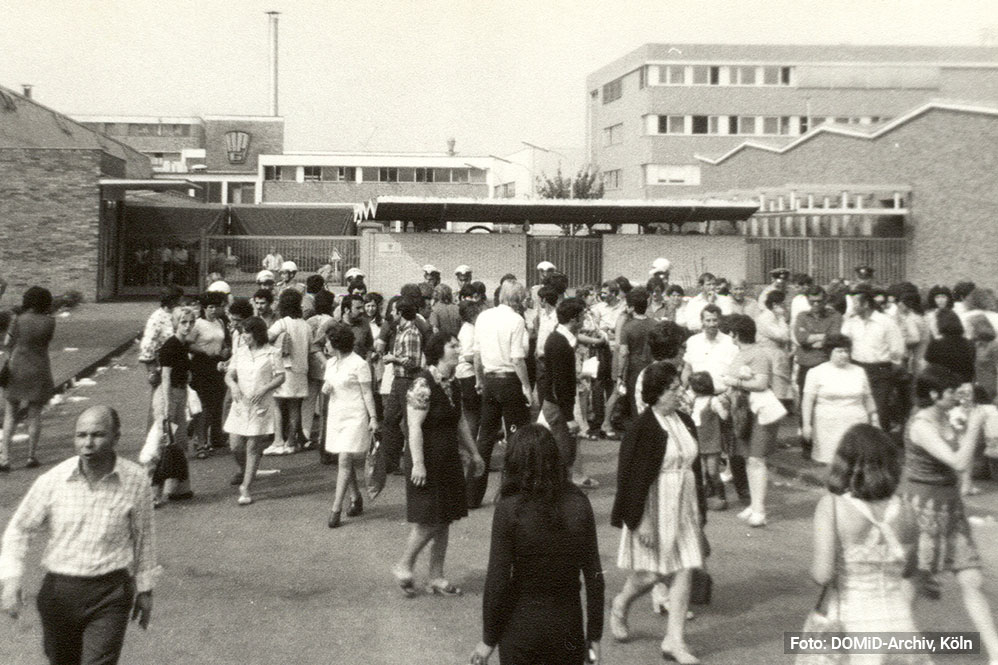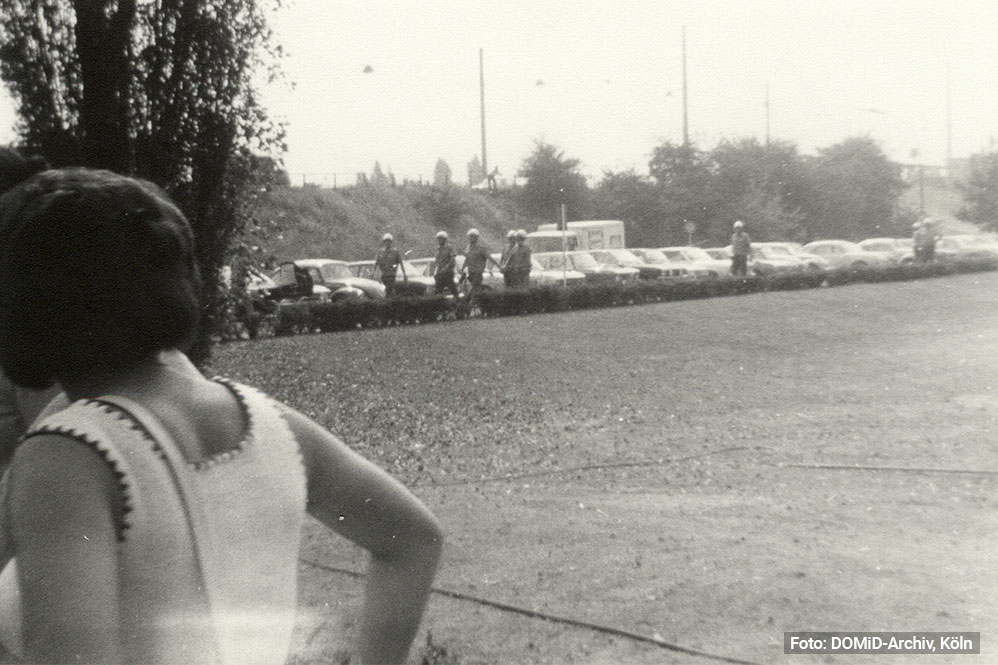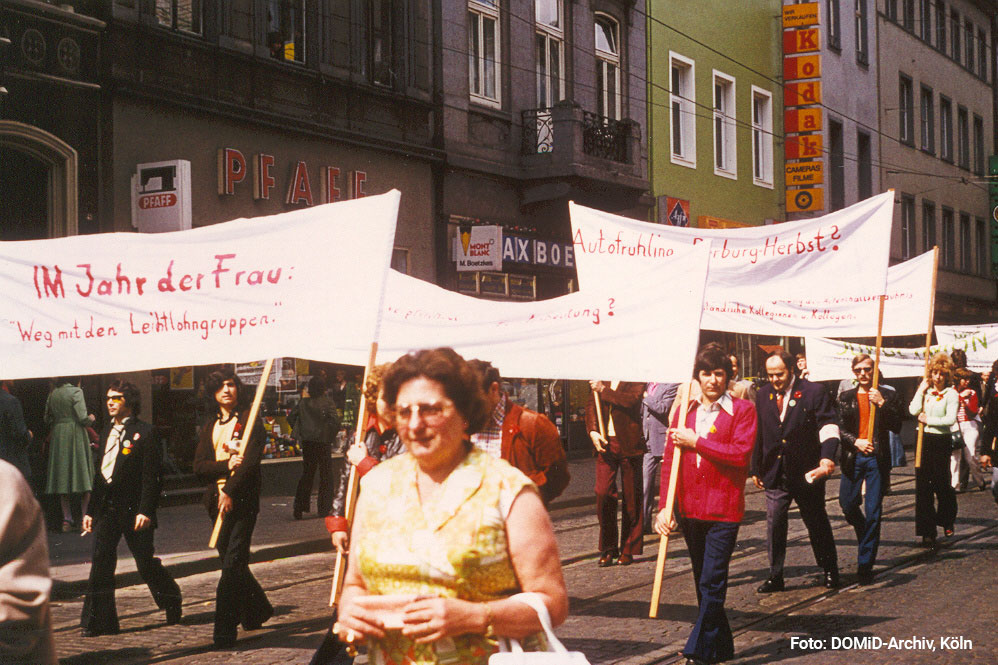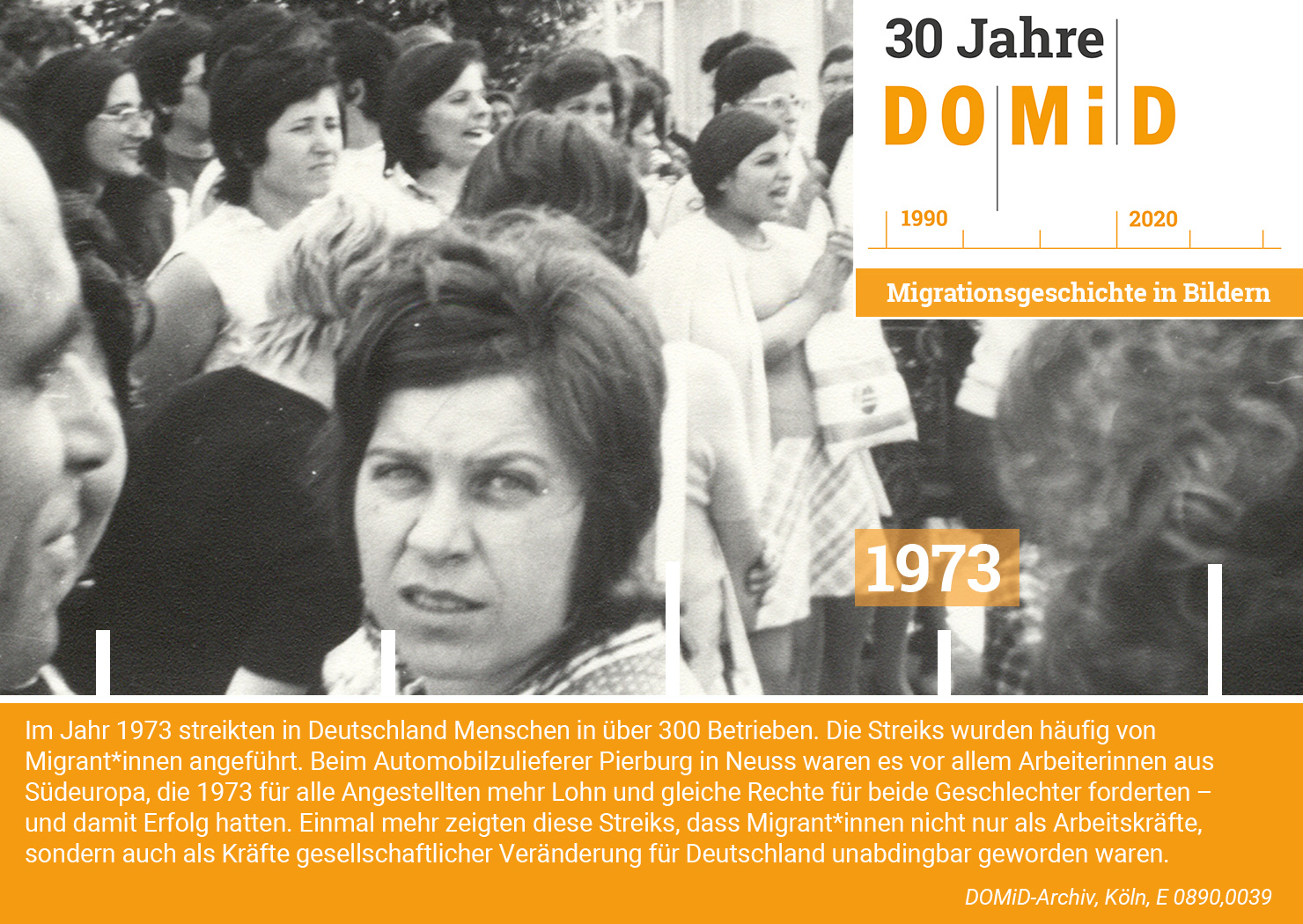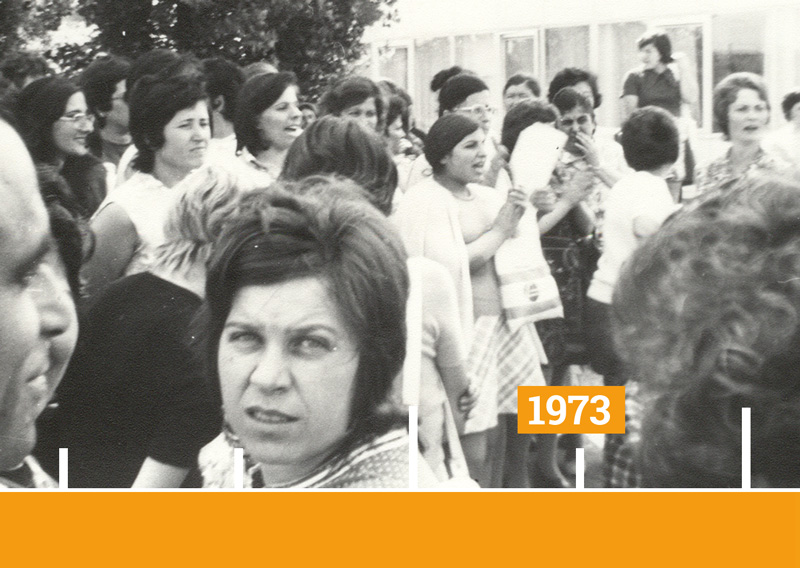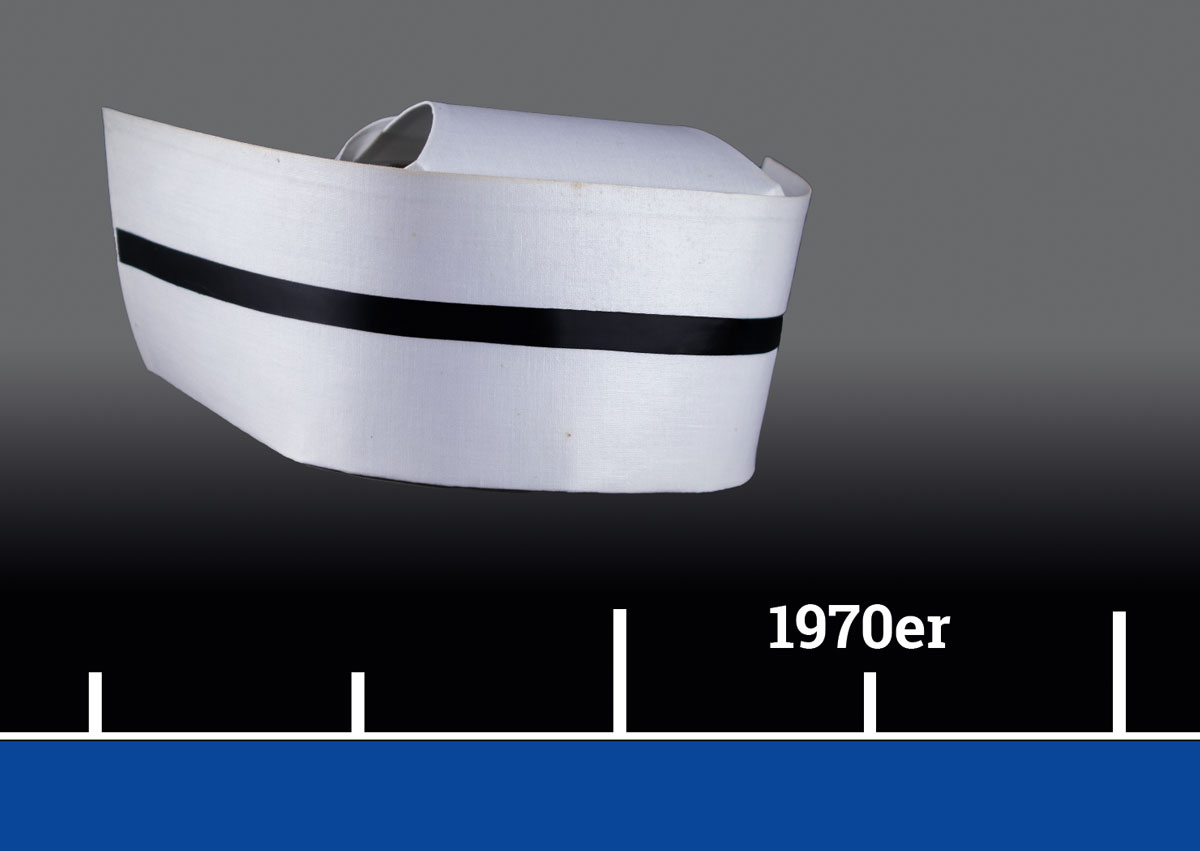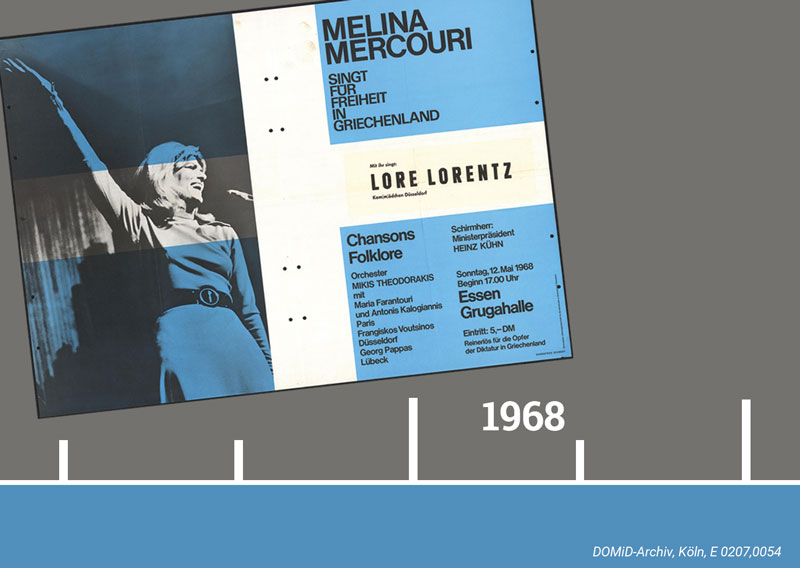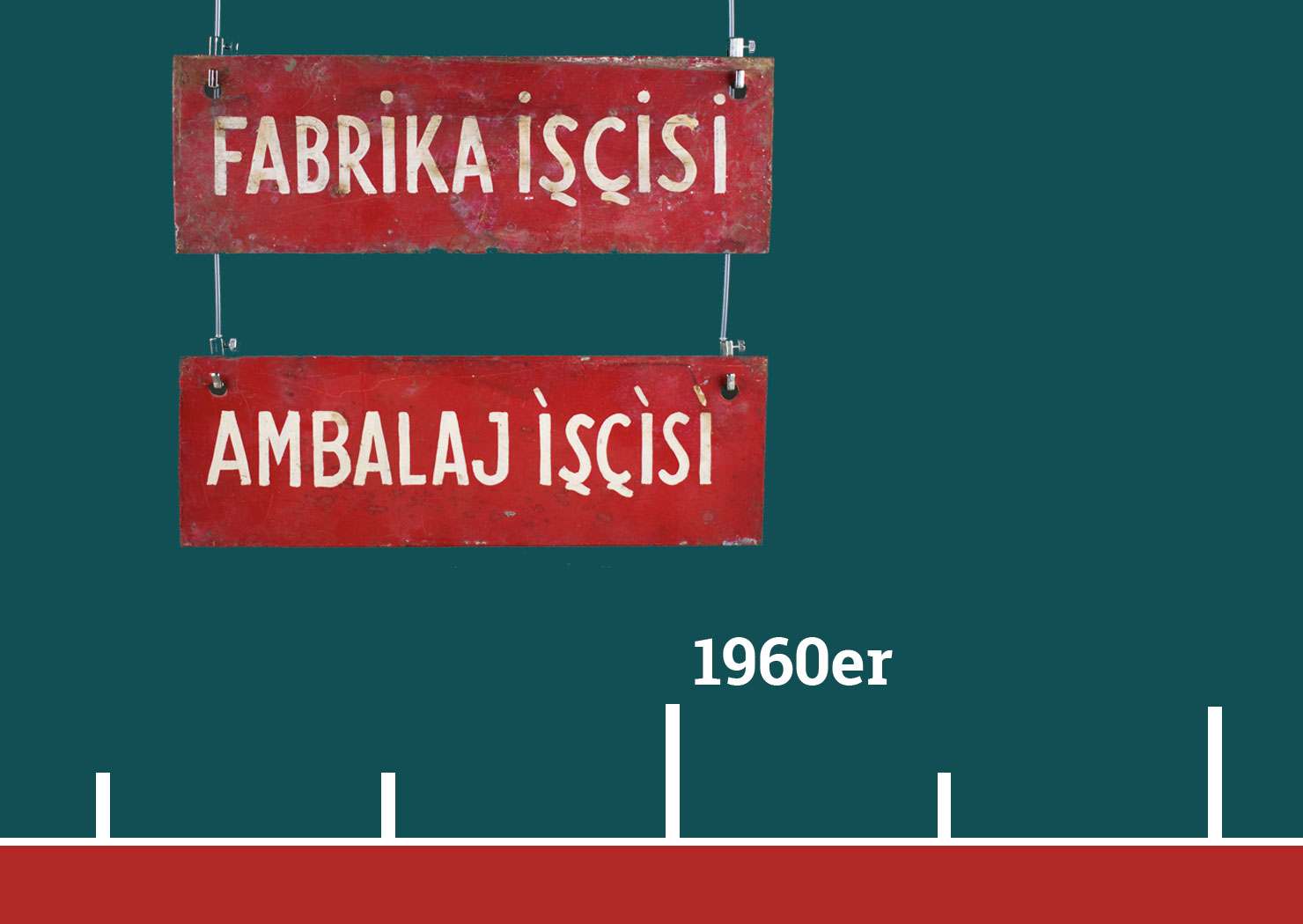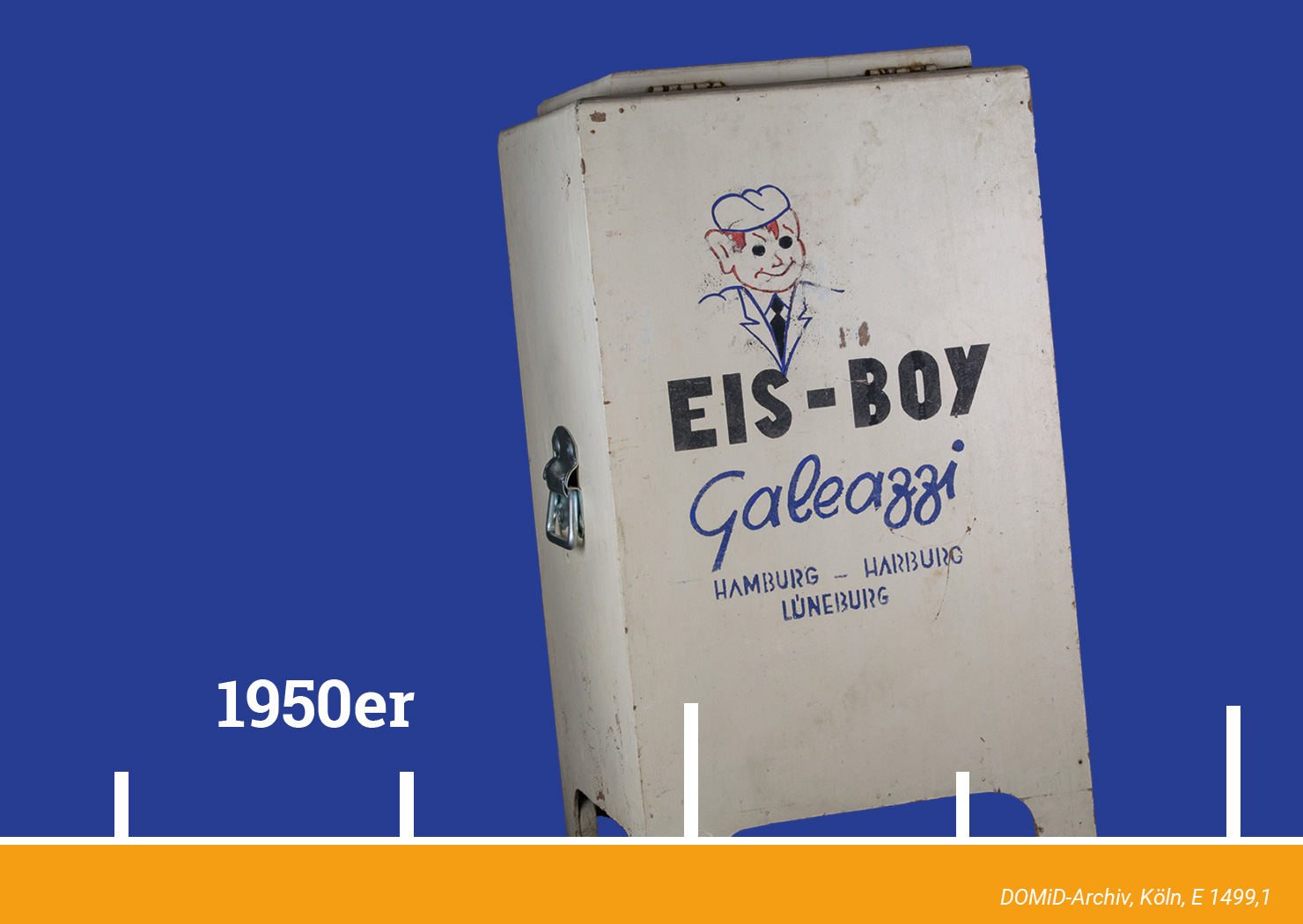"One Deutsche Mark more!" - Migrants and Germans, women and men unite
In June and August 1973 a total of some 2,000 workers, 1,700 of them women, mostly from Yugoslavia, Spain, Turkey, Greece and Italy, initiated a general strike at Pierburg. They demanded the abolition of the low-wage group 2 and one German mark more pay for all workers. The strikes were met with a firm hand from the state side - the police often intervened violently in the protests. But there was also a wave of solidarity : On August 13, the strikes had only been started by smaller groups. But after police arrests and attempts at intimidation by the management, more and more employees gradually joined in. Among their German colleagues, the migrants sought solidarity - with success: within a week the work flow at the company came to a complete halt. The public also showed solidarity with the strikers. In the end, the management had to react as well: wage group 2 was abolished and wage increases of 30 Pfenning for all workers were implemented. The 1973 strike at Pierburg is thus a prime example of the struggle for more gender equality.
